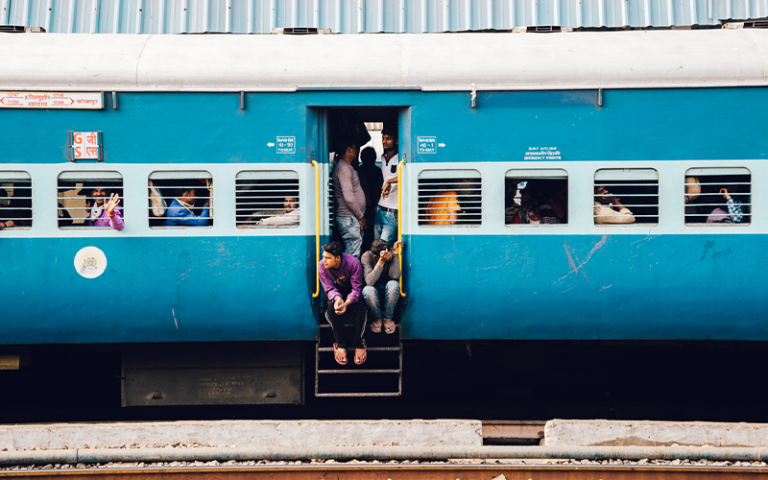Protecting Indian migrant labour from underground economy train tickets
Dr Kartikeya Tripathi (UCL Engineering) used UCL-IIT Delhi Strategic Partner Funds to research security issues on the Indian Railways website being exploited by illicit marketeers.

23 August 2023
Migrant workers are one of the main users of the trains of Indian Railways. They use trains to travel between remote or rural areas in India and the cities for work. However, illicit marketeers can exploit security issues in the Indian Railways website to sell train tickets at very high prices. This takes hard earned money away from some of the poorest people in Indian society.
In response to this, Dr Kartikeya Tripathi collaborated with Dr Abhijnan Chakraborty and Dr Vireshwar Kumar at the Indian Institute of Technology Delhi (IIT Delhi). Together, the UCL and IIT Delhi teams looked at the security problems on the website, and worked with officials at Indian Railways to understand the issues.
Improving security without impacting usability
“Initially, we planned to take the latest developments in cybersecurity and apply them to the Indian Railways website,” Kartikeya explained. “But we quickly realised that we couldn’t just pick up technological solutions from one context, which is the West, and apply them to a completely different context, which is India. Working directly with Indian Railways helped us understand they have their own set of demands and challenges.”
When Kartikeya and his colleagues looked at the Indian Railways website, they spotted a number of security issues that were being exploited by illicit marketeers. They looked at ideas such as two-factor authentication, advanced CAPTCHA and other security protocols that could be introduced to the online ticketing system. But discussing these solutions with staff at Indian Railways uncovered some potential problems.
“One railway official in Delhi described it very well to me,” Kartikeya explained. “She said you have to put yourself in the shoes of a person sitting in a village in India. They’re trying to book a ticket, and they’re barely literate, if not illiterate. If you introduce a number of technical demands, it will increase the cybersecurity, but it will also have a severe impact on usability.” Added to this, the team learned that the internet connection of these individuals may not be very reliable, and they’re probably using a first or second generation smartphone too, which may have some technical limitations.
Kartikeya and the team realised they needed to come up with some different security recommendations that didn’t impact the end users’ ability to book train tickets. As a result, a cybersecurity expert and two post-doctoral students from IIT Delhi joined the project. They looked at the security architecture of the website and tried to exploit the security loopholes, in order to come up with a set of recommendations for Indian Railways. The team is currently working with Indian Railways to help them get to a point where security can be improved without impacting usability.
Helping the poorest in Indian society
Kartikeya said the opportunity to collaborate with IIT Delhi was transformational for the work. Not only does IIT Delhi have good links with Indian Railways, working with them also helped develop trust and buy-in for the research. “When it comes to cybersecurity, crime and policing, there is a level of distrust in Indian institutions in terms of working with foreign universities,” Kartikeya said. “That's understandable, because we’re talking about security and crime. Having a partner in IIT Delhi, a highly reputed institution in India, opened a number of doors for me. It made people more comfortable about sharing data and being open about the challenges they face when it comes to cybersecurity.”
The research could make a huge difference to the lives of poor workers in India too. “The beneficiaries of this project are some of the poorest people in the world, which is migrant labour who use the railways,” Kartikeya said. “All of my research focuses on improving life for vulnerable sections of Indian society. But at the moment, sources of funding for research in India are drying up, because the perception of India has changed from being a poor country to a highly successful economy. So this project wouldn’t have been possible without the UCL-IIT Delhi Strategic Partner Funds.”
 Close
Close

